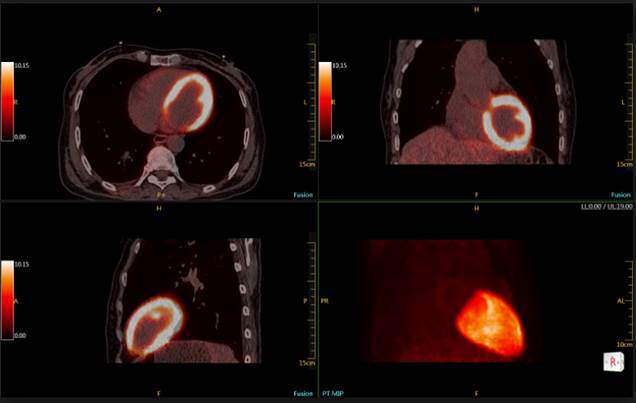PET/CT in Cardiology
PET/CT has numerous essential applications in cardiology, offering valuable insights for diagnosing and treating heart-related conditions. Its accuracy and sensitivity contribute to better patient outcomes and personalized care.
Diagnosing Coronary Artery Disease (CAD)
When conventional perfusion tests, such as nuclear cardiac stress tests, or echocardiographic stress tests yield inconclusive results, PET/CT can be particularly useful in diagnosing CAD. The advanced imaging technology can help detect issues with blood flow and narrow down potential issues, leading to a more accurate diagnosis.
Myocardial Viability and Hibernating Myocardium
One of the most significant roles PET/CT plays in cardiology is assessing myocardial viability. PET/CT flow/metabolism studies are widely regarded as the “gold standard” for identifying hibernating myocardium, which is a crucial factor in determining the likelihood of successful functional recovery after revascularization procedures, such as bypass surgery or stenting. By accurately identifying viable heart tissue, doctors can better predict the potential benefits of revascularization and tailor treatment plans accordingly.

In summary, PET/CT has become a powerful tool in cardiology, aiding in the diagnosis and treatment of various heart conditions. Its ability to provide detailed insights into myocardial viability and coronary artery disease contributes to improved patient care and outcomes.